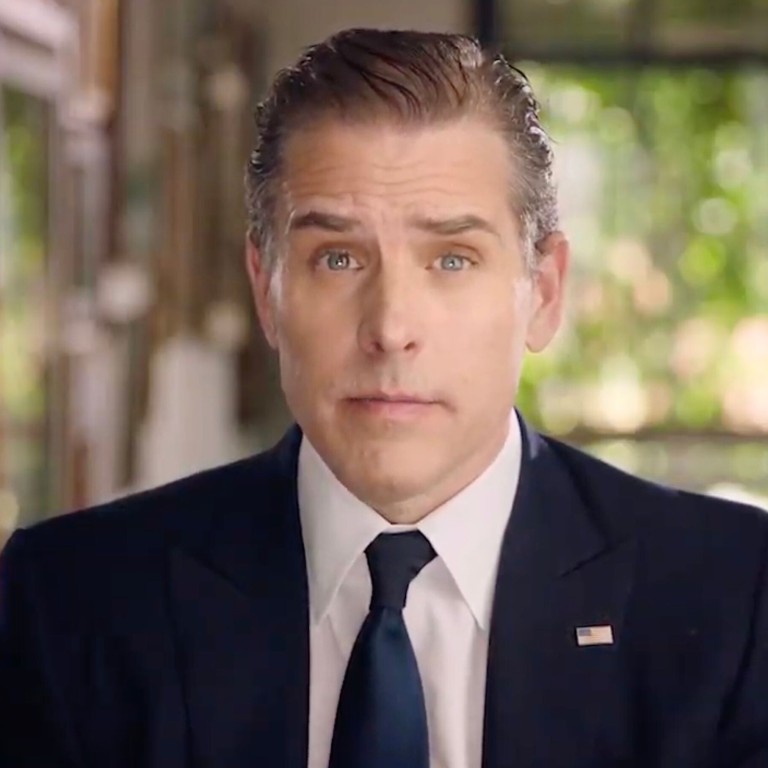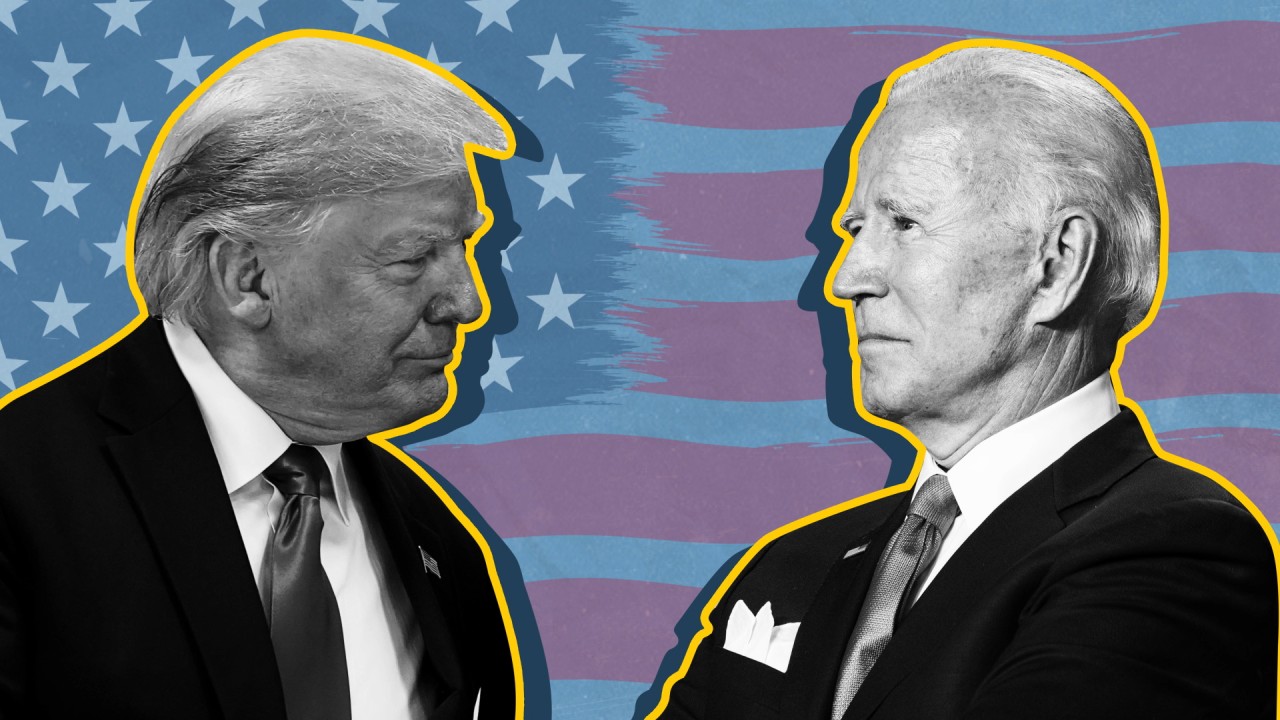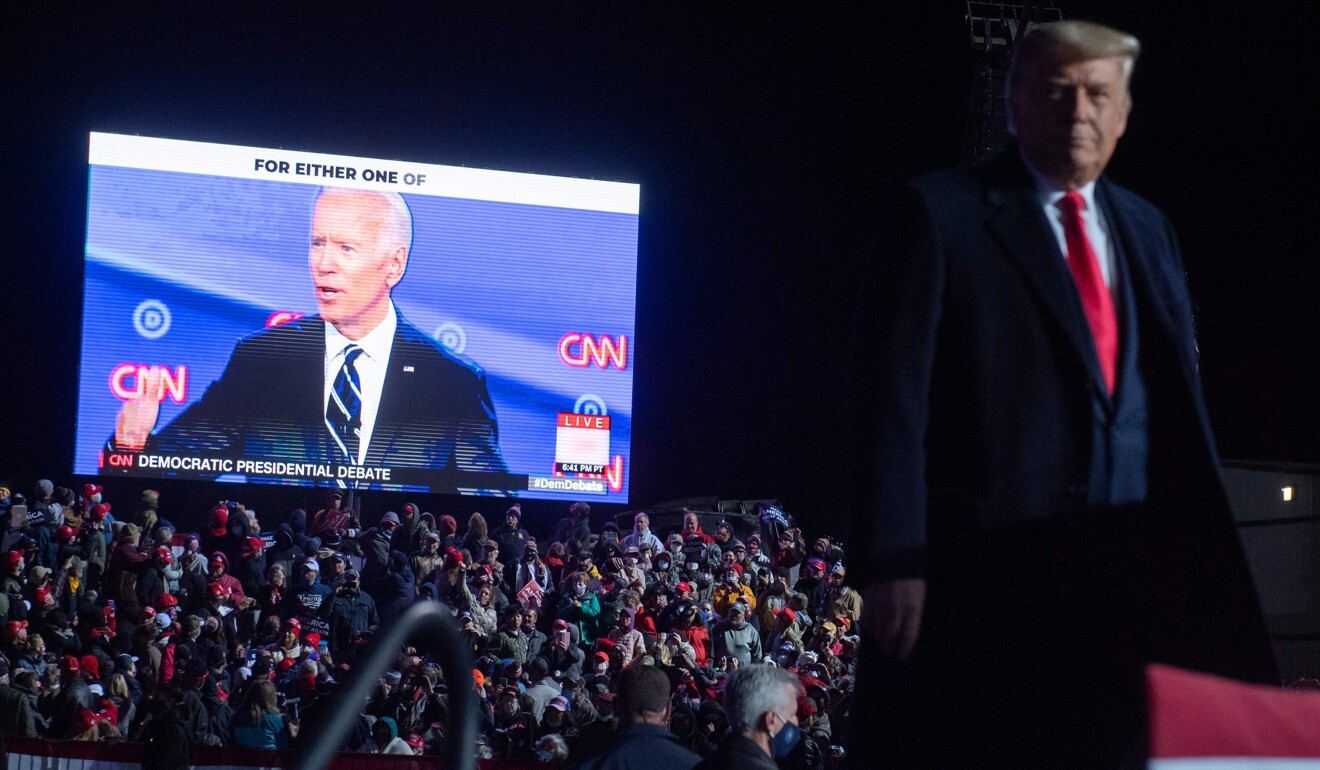
Explainer | Why Donald Trump seized on dubious ‘Hunter Biden emails’ story
- New York Post story suggests that Joe Biden used his former position as vice-president to enrich his son Hunter
- US ex-officials say story could be a disinformation campaign mounted by Russia
The origins of the story also trace back to Trump lawyer Rudy Giuliani, who has repeatedly pushed unfounded claims about Biden and his son, Hunter Biden. Even if the emails in the Post are legitimate, they don’t validate Trump and Giuliani’s claims that Biden’s actions were influenced by his son’s business dealings in Ukraine. A look at the developments:
How did Joe Biden’s son become a campaign issue?
Hunter Biden joined the board of the Ukrainian gas company Burisma in 2014, around the time his father, then US vice-president, was helping conduct the Obama administration’s foreign policy with Ukraine.
Senate Republicans said in a recent report that the appointment may have posed a conflict of interest, but they did not present evidence that the hiring influenced US policies.
Trump and his supporters, meanwhile, have advanced a widely discredited theory that Biden pushed for the firing of Ukraine’s top prosecutor to protect his son and Burisma from investigation. Biden did indeed press for the prosecutor’s firing, but that’s because he was reflecting the official position of not only the Obama administration but many Western countries and because the prosecutor was perceived as soft on corruption.
What does the New York Post story say?
The main email highlighted by the Post is an April 2015 message that it said was sent to Hunter Biden by Vadym Pozharskyi, an adviser to Burisma’s board. In it, he thanks the younger Biden “for inviting me to DC and giving an opportunity to meet your father and spent (sic) some time together. It’s realty (sic) an honour and pleasure.”
The wording makes it unclear if he actually met Joe Biden. The Biden campaign said in a statement that it had reviewed Biden’s schedules from the time and that no meeting as described by the newspaper took place.

11:15
Trump vs Biden: The 2020 US presidential election
How did the Post obtain the emails?
It’s a tangled saga. The Post says it received a copy of a hard drive containing the messages from Giuliani, who has pushed the idea that Ukraine was trying to interfere with the 2016 election and that the younger Biden may have enriched himself by selling his access to his father.
The Post says the emails were part of a trove of data recovered from a laptop that was dropped off at a computer repair shop in Delaware in April 2019. It says the customer, whom the owner could not definitively identify as Hunter Biden, never paid for the service or retrieved it, and says the owner made a copy of the hard drive that he provided to Giuliani’s lawyer.
The owner of the Wilmington shop declined to comment last week to Associated Press, but in news media interviews he has said he contacted the FBI through an intermediary and provided agents with a copy of the hard drive’s contents.
Rudy Giuliani’s daughter urges Americans to vote for Joe Biden in US election
Are the emails authentic?
Hunter Biden himself has not spoken publicly in the last week, including to confirm whether the laptop is his. The Biden campaign has also not addressed that question, though a lawyer for Hunter Biden, George Mesires, said in a statement last week that “we have no idea where this came from, and certainly cannot credit anything that Rudy Giuliani provided to the NY Post”.
Some former national security officials and other experts said the episode raised multiple red flags of a possible foreign disinformation effort, especially given the involvement of Giuliani and his active role in promoting an anti-Biden narrative on Ukraine.
But John Ratcliffe, the director of national intelligence, knocked down that idea in a Fox News interview Monday, saying: “The intelligence community doesn’t believe that because there’s no intelligence that supports that”.
The FBI appeared to endorse Ratcliffe’s position in a letter to a Senate committee that had requested information on the laptop.
FBI investigated whether emails are part of Russian plot
“Regarding the subject of your letter, we have nothing to add at this time to the October 19th public statement by the Director of National Intelligence about the available actionable intelligence,” wrote Jill Tyson, director of the office of Congressional Affairs, in the letter to Senator Ron Johnson, the Republican chairman of the Senate Homeland Security and Governmental Affairs Committee.
Tyson also said she could not confirm or deny the existence of any investigation, in keeping with Justice Department practice.

If authentic, are the emails damaging to Biden?
The suggestion that Joe Biden might have met with a Burisma representative is consequential, because he has repeatedly insisted that he never discussed his son’s business with him.
But the emails provide no details on whether Pozharskyi and Biden actually met and, if so, what they discussed.
If Biden did meet with Pozharskyi, he was not the only US official who may have done so. Pozharskyi was part of a Burisma delegation that lobbied congressional officials in 2014 in an attempt to show that the firm was not a corruption risk.
How did social media companies respond to the story?
Companies like Twitter and Facebook, already under pressure to police their platforms ahead of the election, quickly flagged the article and moved to restrict its accessibility online – an action decried as censorship by Trump and his supporters, including congressional Republicans.
Facebook spokesman Andy Stone announced on Twitter that the company was working to reduce the distribution of the article on its platform.
Twitter began banning its users from sharing links to the article in tweets and direct messages because it violated the company’s policy that prohibits hacked content. Twitter later changed its approach and allowed users to share links to the Post story.
Trump vs Biden: where they stand on key US election issues
What’s the political impact?
With two weeks until Election Day and polls showing him trailing Biden, Trump appears to be returning to the subject of his opponent’s family to energise his base.
But in an election dominated by concerns about the coronavirus pandemic, it’s less certain Trump’s strategy will appeal to the voters he needs to win back, including moderate Republicans and suburban women.
Trump’s called for a full accounting of Biden’s conversations with Hunter and with Pozharskyi, and called his Democratic opponent a “criminal”.
Asked by a reporter on Monday if this was his strategy in the final stretch of the campaign, Trump said: “Joe Biden is a criminal and he’s been a criminal for a long time”. Trump also lashed out at the media “for not reporting it”.
He offered no evidence to back up his allegation other than to say “read his laptop”, presumably a reference to the computer at the centre of the Post’s story about Hunter Biden.
Joe Biden’s campaign, meanwhile, pointed to the recent Republican-led Senate investigation that found no evidence of wrongdoing on Biden’s part with regard to Ukraine. It also pointedly noted the involvement of Giuliani, saying his “discredited conspiracy theories and alliance with figures connected to Russian intelligence have been widely reported”.
Additional reporting by Agence France-Presse

